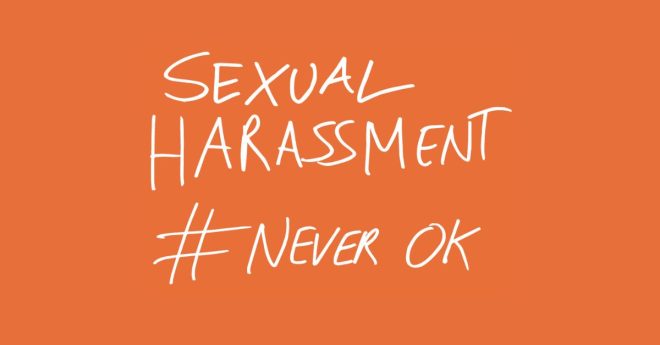Sexual harassment is a scary phrase. It’s a phrase that we often avoid bringing up or choose not to speak about. Sexual harassment is something we don’t like to confront. It’s something that we think we can ignore because ‘I’ve never harassed anyone, so it’s none of my business’.
It is our business.
Sexual harassment is my business, and it is your business.
As university students, 62% of us have experienced sexual harassment at university.
Sexual Harassment can take many forms. It includes;
- Catcalling / wolf-whistling
- Staring
- Sexual ‘jokes’
- Unwanted sexual advances
- Intrusive questions about a person’s private life or sex life
- Spreading sexual rumors
- Commenting on someone’s appearance or what they look like
- Unwanted physical contact
- Sending messages of a sexual nature, such as unsolicited ‘sexts’ or ‘dick pics’
The list goes on…
So, ask yourself.
Have I ever taken a sexual ‘joke’ too far?
Have I ever been part of a conversation about another individual’s sex life that went too far, but did nothing to stop it?
Have I wolf-whistled, or inappropriately stared at someone making them feel uncomfortable?
If the answer to even one of these questions is, yes, then sexual harassment is your business.
I asked some students to discuss their own experiences of sexual harassment at university and here is what they had to say.
“In first year, a boy who lived in my halls wouldn’t leave me alone whenever I went on nights out. I tried to take it as flattery, but looking back, it was stalking. No matter where I was, he would be there. If I was at the bar, he was at the bar. If I left the club, he left the club. If I went to bed, he persisted until he was in bed with me. I was oblivious at the time to how extreme the situation was.” (Anonymous, University of Reading)
“A girl I was seeing started spreading malicious rumors about me after we split up. I felt really emasculated and the rumors got back to my friends. The rumors have now become a running joke in my friendship. It’s a situation I have found difficult to deal with.” (Anon, 3rd Year, Uni of Reading)
These are experiences from our own peers that too many of us can relate to. Despite more than half of us having our own experiences of sexual harassment – only 6% of those who have been subject to the crime report it to their university.
Not enough of us feel comfortable reporting our experiences, and unfortunately, most of us do not want to.
Being an active bystander is one of the most important and proactive actions we can take to support one another against the crime of sexual harassment. If each of us individually take small steps every day to combat the culture surrounding sexual harassment on campus, we can make a huge difference.
What does being an active bystander look like?
- Don’t be an enabler of sexual ‘jokes’, don’t give the people who tell them an audience.
- Be present and aware of your surroundings. If you notice someone staring when you’re out, consider telling a member of staff so they can keep everyone in their venue safe.
- Be open and honest with your friends about boundaries.
You can access the universities active bystander and consent training via Essentials.
Please sign the pledge to support our campus community and stand up against sexual harassment.
